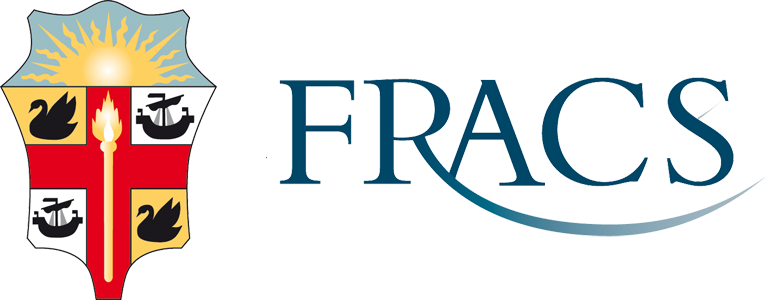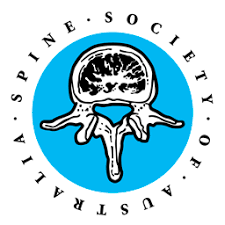A Patients’ Guide to Spine Surgery
The following information is provided to answer many questions you may have, regarding preparing for spine surgery, recovery and your rehabilitation.
Please remember that everybody is an individual and therefore this information is provided as a guideline only.
-
Pre Admission Programme
Our staff will arrange your admission to the hospital.
The practice manager will review the details with you after you consult with Mr Malham. A letter will follow informing you of the date and time, hospital and anaesthetist for your operation.
PLEASE NOTE: Any blood thinning medication should be ceased as detailed below:
- Aspirin (Cartia) and Clopidogrel (Plavix) must be stopped ten days before surgery.
- Warfarin (Coumadin) is to be stopped five days before surgery.
- Pradaxa and Xalatan are to be stopped two days before surgery.
You may receive a telephone call from the hospital before your admission. This will be from the business office to confirm your insurance status and personal details or from a registered nurse to discuss your hospital stay, recovery process and the outcomes you will achieve following surgery and before discharge.
The information obtained will assist in planning referrals to rehabilitation, community support, physiotherapy and occupational therapy services.
You may have blood tests and an ECG (heart rhythm test) taken before or on admission. If you have other medical problems, Mr Malham will arrange for a specialist physician to see you before your operation and during your hospital stay.
-
Recommendations on what you should take to Hospital
- Do not take valuables (jewellery). Remove rings, and do not wear nail polish.
- All current medications and any repeat prescriptions
- X-rays, CT scans and MRI scans
- Nightgown/pyjamas/dressing gown
- Comfortable clothing, tracksuit or similar
- Comfortable shoes/slippers/socks/underwear
- Toiletries/tissues
- Spectacles/pen/paper/magazines/books
- Admission
You will be admitted on the day of surgery or the day before, depending on the timing of your operation or if you need to be seen by a specialist physician before surgery.
You should present to the Admissions Office on arrival (Epworth Richmond Hospital, 2nd floor). After registration, you will be escorted to your room.
-
Day of Surgery
Stop eating and drinking 6 hours before your operation. You need an empty stomach before your anaesthetic.
You will be provided with a hospital gown to wear.
A pre-med will be given (tablets or an injection) to relax you. After the pre-med has been given, you must stay in bed until an orderly takes you to the operating theatre.
-
After Your Operation
You will be taken to the recovery room from the operating theatre until you are awake and stable from the anaesthetic and surgery.
Mr Malham will check on you in recovery. When you are awake, he will ring your nominated relative/friend and let them know how you are doing. Standard practice is to stay in recovery for one hour to be monitored before returning to the ward and receiving visitors.
An intravenous line will be positioned in your arm for fluids and pain relief. You may also have a mask over your nose and mouth for oxygen until you are fully awake. You may also have a urinary catheter to drain your bladder for longer operations.
Depending on the type of surgery, you may have a safety draining tube in your back. This is to drain any excess blood from the wound. Drains are usually removed by a nurse 24 – 48 hours after operation.
It is important not to eat or drink following the surgery until you pass wind or bowel sounds return (stomach rumbling). This is because the anaesthetic makes your stomach go to sleep; if you eat too soon, you may vomit. The nurses will check on these signs to make sure it is safe for you to eat.
Your physiotherapist will show you deep breathing exercises. It is important to do these regularly to keep your lungs working well while lying in bed.
You will also be given exercises every hour, moving your ankles and knees to avoid blood clots in the calves, which can break off and move to the lungs. To assist with this, you will also have calf (TED) stockings fitted on the day of your operation.
Your wound will be closed with either dissolvable sutures or skin clips. The nurses, as required, would change wound dressings. Arrangements will be made for skin clips to be removed after you have returned home by either your GP or district nurse. Neck clips are removed on day five and back clips on day 10 (day one is the first day after surgery.)
-
Pain Control
After consultation with you, your anaesthetist, the nursing staff, and Mr Malham, your pain control programme will be decided on.
During the first two to three days, you will experience some pain. This pain comes from muscle retraction and the skin wound. This will be controlled by intravenous medication through a patient-controlled pump (PCA). Once off the drip, you will be given intramuscular injections and/or tablets if required.
It may be necessary to continue taking pain relief when you are discharged, and a prescription will be arranged.
-
Position and Movement Following Surgery
Activity in bed and early mobilisation are encouraged to prevent complications.
When lying in bed, you must keep your spine straight and in good alignment. You can lie on your sides or back. Nurses will assist you to roll side to side during the first 12 – 48 hours.
Depending on the type of surgery, you may be allowed out of bed within 24 hours of the operation. A physiotherapist will instruct you for the first time when getting out of bed, and then a nurse will continue to assist you. You may be dizzy the first time you get up, so ensure a physiotherapist or nurse is present.
It is important when getting up to lie on your side as close to the edge of the bed as possible. Sit on the edge of the bed first for a few minutes before standing up. Sitting puts more pressure on the back, which can often be uncomfortable. Discomfort will be minimised by standing and walking.
Gradually increase the walking time as tolerated over the next few days. Aim for 3 to 4 small walks per day rather than one large walk.
You will have an elevated toilet seat and a straight-backed high chair during your hospital stay. Both of these reduce the stress on your back.
-
Bracing
After neck surgery, you will be given a soft cervical collar for four weeks. This soft collar is for comfort only when out of bed, sitting, standing, walking and travelling in a car only as a passenger. Do not wear the collar in bed at night.
After back surgery, no soft or hard braces are to be worn. These braces weaken the back muscles. The physiotherapist will give you exercises to strengthen your “core” muscles (abdomen, back, pelvis and leg muscles).
-
Constipation
Decreased activity, limited appetite, reduced fluid intake and multiple medications may cause constipation. Walking, drinking plenty of water, increasing fibre content of your diet and taking a mild laxative will help this. Continue this once you go home.
-
Rehabilitation & Recovery
Following surgery, there is a recovery or convalescence period, and you may experience tiredness, discomfort, weakness and impaired mobility. This is normal and will improve.
A physiotherapist will assist in your recovery and return to independence around the ward following surgery. This will include help with mobility, instructions on what to do and not do, and developing a home exercise/activity programme.
Most patients can return directly home after surgery. A proportion of patients require transfer to inpatient rehabilitation. The need for rehabilitation will be assessed by Mr Malham and discussed with you, the physiotherapist and the nursing staff. Placement in a rehabilitation centre will consider where you live and other family considerations. Once independent, rehabilitation can be continued as an outpatient.
-
Time Frame for Recovery
- The first four weeks (weeks 1-4) are usually spent getting over the operation, walking and a home exercise programme: no bending or twisting.
- The second 4 weeks (weeks 5-8) can include swimming and a light gym program.
- The third four weeks (weeks 9-12), increasing activity, light jogging and a medium gym programme.
- From week 12 onwards, resumption of normal activities. Normal gym programme, running, cycling and golf.
-
Nutrition
Blood loss can occur during surgery, causing a drop in iron levels. Iron is needed for blood to carry oxygen. This can cause tiredness and headache. You may need a blood transfusion or iron tablets to improve this. The blood given to you is all screened and safe. The iron tablets (usually one tablet a day for six weeks) may cause dark stools and constipation.
The body also needs calcium for bone repair. Dairy foods are the best sources of calcium, such as milk drinks, yoghurt, cheese, and custard. Sunlight helps the body make vitamin D for bone strength, so go outside daily and enjoy the sunshine. You may be prescribed calcium and Vitamin D tablets if you have low Vitamin D levels or osteoporosis.
Protein foods are good for muscle repair. Eat lean red meats, chicken, fish and vegetables.
Smoking inhibits healing, especially bone fusion. If you haven’t given up before your operation, now is a good time to consider quitting! Smoking increases your risk of stroke, heart attack and lung cancer.
-
Sitting
Generally, it is best to keep your back straight with lumbar surgery. You can lie, stand, walk, and sit only for meals four weeks post-operatively. Avoid bending at twisting activities.
Limit this to 20 minutes when sitting for meals, and use an upright chair/stool.
-
Driving
Avoid driving until you discuss this with Mr Malham at your 4-week postoperative review. You can only travel by car as a passenger for short distances, and remember to recline the seat 30 degrees to keep your back straight.
-
Sexual Activity
You may resume normal sexual activities if you take the passive role. If back discomfort increases, stop immediately.
-
Returning to Work
Returning to work will depend on the type of surgery performed and your work. Mr Malham, or a team member, will advise each patient individually.
Surgery: Neck Surgery (Anterior Cervical Discectomy and Fusion or Posterior Micro Foraminotomy)
Light Duties/Office Work: 2-3 Weeks
Manual Work: 4-6 Weeks
Surgery: Back Surgery (Lumbar Microdiscectomy or Laminectomy)
Light Duties/Office Work: 2-4 Weeks
Manual Work: 6-8 Weeks
Surgery: Lumbar Fusion Surgery (Posterior Lumbar Interbody Fusion, Transforaminal Lumbar Interbody Fusion or Anterior Lumbar Interbody Fusion)
Light Duties/Office Work: 6-8 Weeks
Manual Work: 12-16 Weeks
Please Note: this is a guide only, and each case is assessed on an individual basis during recovery.
-
Post Operative Appointments
A Post Operative Appointment is usually scheduled 4 – 6 weeks following discharge. It is important that you keep this appointment so that Mr Malham can check your progress.
Usually the ward clerk will schedule a Post Operative Appointment prior to your discharge or you may be asked to contact our rooms from home. If so, please remember to contact Mr Malham’s rooms as soon as possible to schedule this postoperative appointment.
-
Be Prepared Checklist
The following suggestions are made to maximise your safety on returning home following your procedure.
- Make up your mind to do exactly as instructed. Remember that the nursing staff will give you their attention for several days after the operation. It is a good sign that you are progressing when this attention diminishes.
- Remember that physiotherapy is also a vital part of your recovery. The physiotherapist will see you daily in the hospital and then instruct you with a home exercise program.
- Ensure items such as the telephone are within easy reach.
- Ensure a non-slip surface is located on the shower recess floor and that there is ample soap/shampoo to ensure that you do not have to bend down to pick up if dropped.
- A firm, supportive bed will be more comfortable and easier to get on/off.
- When sitting, use a seat that is slightly higher than normal so your hips are higher than your knees. Armrests assist in levering your body weight up and down.
- Purchase essential home supplies before admission.
- No driving for four weeks until postoperative review by Mr Malham.
- Travelling by car as a passenger for short distances only with the seat reclined 30 degrees.
- Eat properly and drink plenty of water.
- Keep your back straight! Avoid bending, twisting, heavy lifting or activities above shoulder height.
- Gradually increase your activity.



